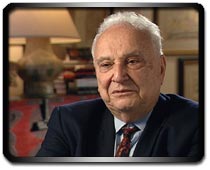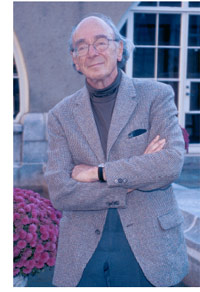 Keywords: loyalty; Israeli-Hezbollah War; Heather Reisman; Gerry Schwartz; attachment; peptides; empathy; blame; Dead Man Walking; Sister Helen Prejean.
Keywords: loyalty; Israeli-Hezbollah War; Heather Reisman; Gerry Schwartz; attachment; peptides; empathy; blame; Dead Man Walking; Sister Helen Prejean.My thoughts today are full of contradictions: love and hate; attachment and rejection; blame and empathy; truth and fiction; retribution and forgiveness.
What brings this to mind is that I have to recognize how little attention I am devoting to the Middle East conflicts. I haven’t been writing here about the
Israeli-Hezbollah War. At times my friend Richard Handler is deliberately provocative about the Middle East, mentioning his own loyalty to Israel to bait me and challenge my own commitment to peace. He is keen to discuss it, but I am not. I just let his comments pass without reply, much as I skim the newspaper reports every day without mentally concocting a retort. As an editor of a peace magazine, I should have organized some facts and arguments, but I haven’t. I no longer believe in rational argument about such matters. Debate never changes anyone’s mind. (Think hard: When did you ever see a person change a fundamental position as a result of debate?)
Yesterday I read in the paper that the Canadian magnates
Heather Reisman and Gerry Schwartz have switched parties and expressed gratitude to the Harper government for taking an overtly pro-Israeli position. This did not surprise me, nor did I blame them. I simply thought: Poor dears. They cannot help it. It’s not a matter of whether they are right or wrong. They have bonded with Israel. It’s in the heart, the gut, the liver, or someplace else. It’s fixed. It’s social, not in the DNA, yet it’s almost as permanent as if it were hereditary. The amazing thing is that anyone ever puts aside his group
attachment. How can a person ever do that?
Attachment is a mystery that happens to everyone. Statistically and psychologically, it is normal. It is also immutable, like falling in love. You cannot deliberately fall in love, nor can you prevent it when it does happen. It’s the same with group attachments. You feel that you’re Jewish or Lebanese or Tamil or Canadian — as if this were not a matter of choice but an inborn trait, like the color of your eyes. Likewise, there’s no point in telling a person that the jerk with whom she is in love really
is a jerk. Even if she does not dispute the evidence, it is irrelevant to the strength of her attachment. A particular peptide has clicked into certain brain cells, creating a bond. It can’t be helped.
Love may wear off in time. The intense phase of being in love lasts an average of two years, but there are usually lasting attitudes that persist for many years thereafter. Group identity lasts longer. I still feel offended when Canadians express anti-American stereotypes, though I feel as much Canadian as American — as indeed in the legal sense I am. It’s not a matter of rational agreement with US policies or habits (I am as anti-Bush administration as anyone) but rather a sentiment of attachment to the society that gave me life and culture. Perhaps others say to themselves: Poor Metta. She cannot help it. And that’s true.
Sentiments and feelings are not affected by reason; indeed, they are more powerful than reason. They are where we get our
motivations. Reason never motivated anyone. Love and hate always do. The reasons we adduce for our loyalties are always filtered through our motivations. They are never pure, as mathematical theorems are.
When it comes to war, all belligerent parties can prove that their side is not to
blame; their adversary started the trouble and must be taught a lesson by retaliation, tit for tat. But when has anyone ever learned such a lesson? Each new retaliation simply serves as a justification for yet another response. The cycle can go on for centuries, millennia, with each side blaming the other. It is useless to point out that there is no starting point that can be defined “objectively” as the egregious, inexcusable origin of the conflict, the initial action for which ultimate blame should be assigned. Everyone knows this, yet everyone continues to organize evidence as required for the next debate.
What is absent? The capacity for
empathy. After attachment has taken hold, one cannot put oneself into the shoes of the adversary. Yes, a Tamil may be able to imagine how a Jew or a Congolese or a Kosovar feels and thinks — but not a Sinhalese, for the Sinhalese are adversaries, the out-group counterpart to his Tamil in-group. It is pointless to present rational arguments, for he cannot assimilate them. He cannot empathize, the poor dear. He can’t help it.
With the absence of empathy goes blame, and blaming cannot be helped either. It’s a compulsion. Sunday Anton Wagner read aloud in church a letter from a Chinese person who objects to the observation of Hiroshima and Nagasaki Day every year. The letter asked: Why should the Japanese victims be remembered, but not the Chinese whom the Japanese slaughtered in the “
rape of Nanking”?
In a sense, this is a reasonable question. Apart from a few highly developed souls, empathy is always selective. Rationality might be invoked to justify any particular apportionment of it on grounds of fairness by comparing the victimhood and deservingness of the potential objects of empathy. Nevertheless, that line of reasoning leads nowhere. Whether to blame or to empathize is not a rational decision, but instead reflects the state of one’s attachments or rejections — an affective issue, not a judicial one. The Chinese letter-writer, protesting against our pity for Japanese victims rather than Chinese ones, makes a fair point, but a useless one. His resentment cannot be assuaged. Resentment has a life of its own, a dynamic of its own. When one feels hatred, that is more a personal, spiritual problem than a social problem for the rest of us to help solve.
To be sure, blaming
is a social problem, for it justifies every act of retaliation against presumed wrongdoers, leading to cycles of retaliation that harm everyone. But the most serious harm is to the blamer himself – the plaintiff, if you will. Complaining is not a pleasant psychological experience. It needs to be resolved by forgiveness or mercy — the restoration of empathy. And to do so is a rare spiritual accomplishment.
Not everyone has to confront such a challenge in a personal relationship — thank goodness. To do so must be hell. Take, for example, the family of a mass murderer or rapist. Today’s paper contains a story about a group of drunken American soldiers who raped an Iraqi girl and killed her and her whole family, then amiably grilled some chicken wings. The paper does not mention anything about the families of these young men, but they are much on my mind. Everone discusses the obvious intellectual puzzle: the psychological processes by which normal individuals turn into monsters. Much has been written about it, but it’s not such a remarkable mystery. We all understand more or less how it can happen, for we all have done things that we regret deeply, with shame.
What is more rare and more interesting to me is the plight of the moral people who find themselves emotionally attached to a monster – or, for that matter, to anyone whose behavior cannot be excused. Right versus wrong is an easy choice. What is far more interesting is the contradiction between two moral imperatives: right versus right. It is right to bond unreservedly with a few other individuals in this lifetime. It is right to empathize with them fully, loving them and empathizing with their moral and emotional struggles as intimately as possible. The capacity for such love is the highest human achievement.
Yet it is also right to recognize the truth and to uphold moral principles. Love must not excuse the inexcusable. Love must sometimes confront and challenge. Nevertheless, these two moral imperatives constitute an “antinomy” – an irreconcilable contradiction. The most common response to this challenge is simply to break empathy with the person who has gone seriously wrong.
But breaking empathy is inherently painful, even when it is possible – which it may never really be, in the deepest sense. There must remain some traces of the bond, even when they are suppressed as fully as possible. And to break empathy, even for the sake or protecting oneself psychologically, is always to some extent a spiritual failure. Every bond is God-given, not chosen rationally. The question is, what must one do to properly fulfill the calling that the bond imposes? Sometimes the fulfillment may appear callous — “tough love,” it is called — but even tough love is a terrible experience, not least of all for the one who loves.
Joy Kogawa has written about this kind of experience in her novel
The Rain Ascends. The protagonist is an ordinary woman — no, actually an extraordinary one — who finally confronts a terrible truth about her beloved father: that he is a lifelong pedophile who has abused hundreds of young boys. The initial phase of her challenge was to acknowledge the truth, which she managed to deny throughout most of her adult years. But, having finally acknowledged it, the greatest challenge was to manage both to sustain her empathy for this killer and also fulfill the legitimate demands of society for sanctions against him. In the novel, this is cast in terms of a spiritual challenge to a committed Christian — how to love someone who has behaved despicably?
There are other stories about such spiritual challenges. One is “
Dead Man Walking, ” (see photo) about a nun,
Sister Helen Prejean, who counsels and befriends a condemned murderer out of a sense of religious obligation. In this instance, her empathy arises less as a spontaneous bond than as a conscious fulfillment of the Christian duty to love those who are not lovable. She empathizes with this unredeemable man and also with the family of his victim.
I myself never attempt such feats of charity. The closest that I can come to experiencing this antinomy is to follow vicariously the stories about persons who are stronger than I am — characters who manage their attachments with a certain grace that I can admire but almost never emulate. I am grateful for the fiction-writers who let me experience such a spiritual challenge in an attenuated way, without having to address it in full force in real life.
 Keywords: Love; lust; sexual desire; limerence; falling into love; biochemicals; worldly love; transcendent love; world-denying love; Axial Age religions; Buddha; Jesus; St. Francis of Assisi; Max Weber; erotic love; social bonds; brotherliness.
Keywords: Love; lust; sexual desire; limerence; falling into love; biochemicals; worldly love; transcendent love; world-denying love; Axial Age religions; Buddha; Jesus; St. Francis of Assisi; Max Weber; erotic love; social bonds; brotherliness.









